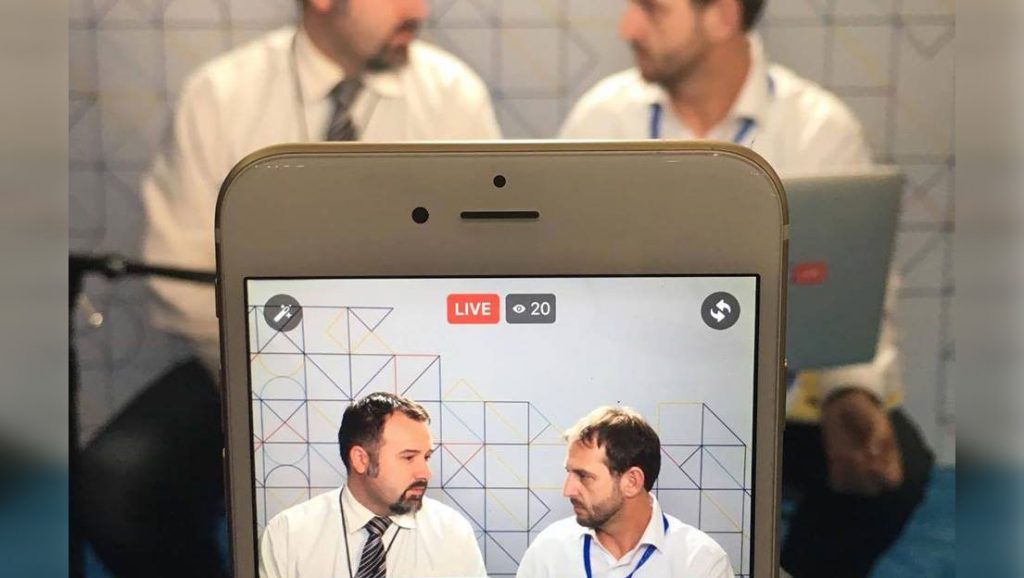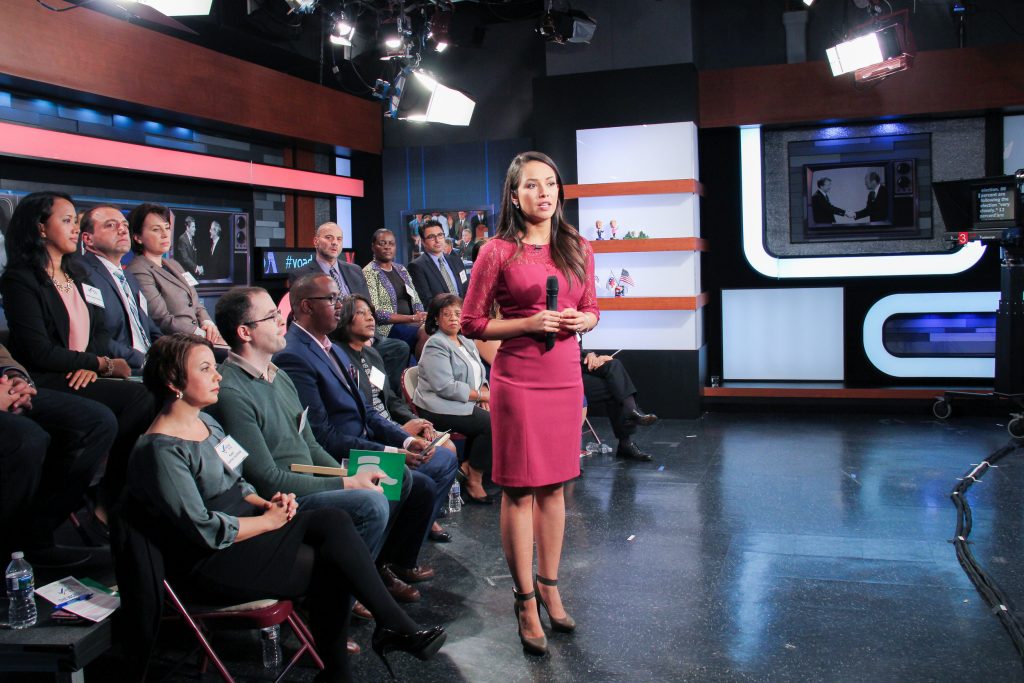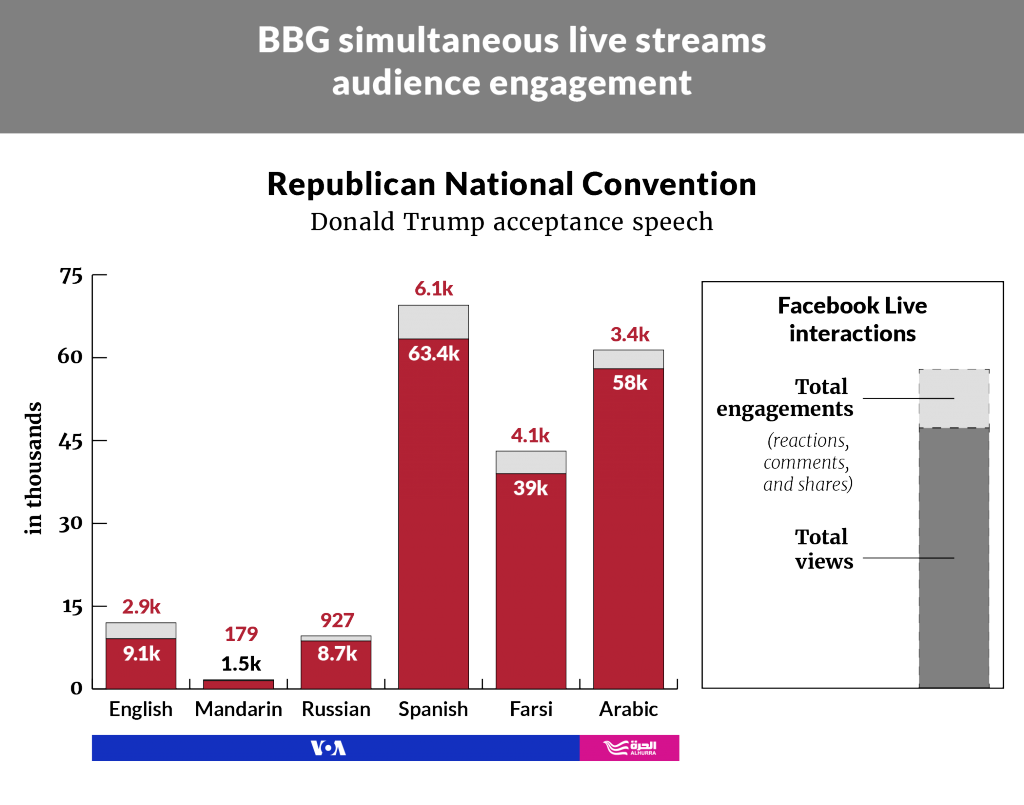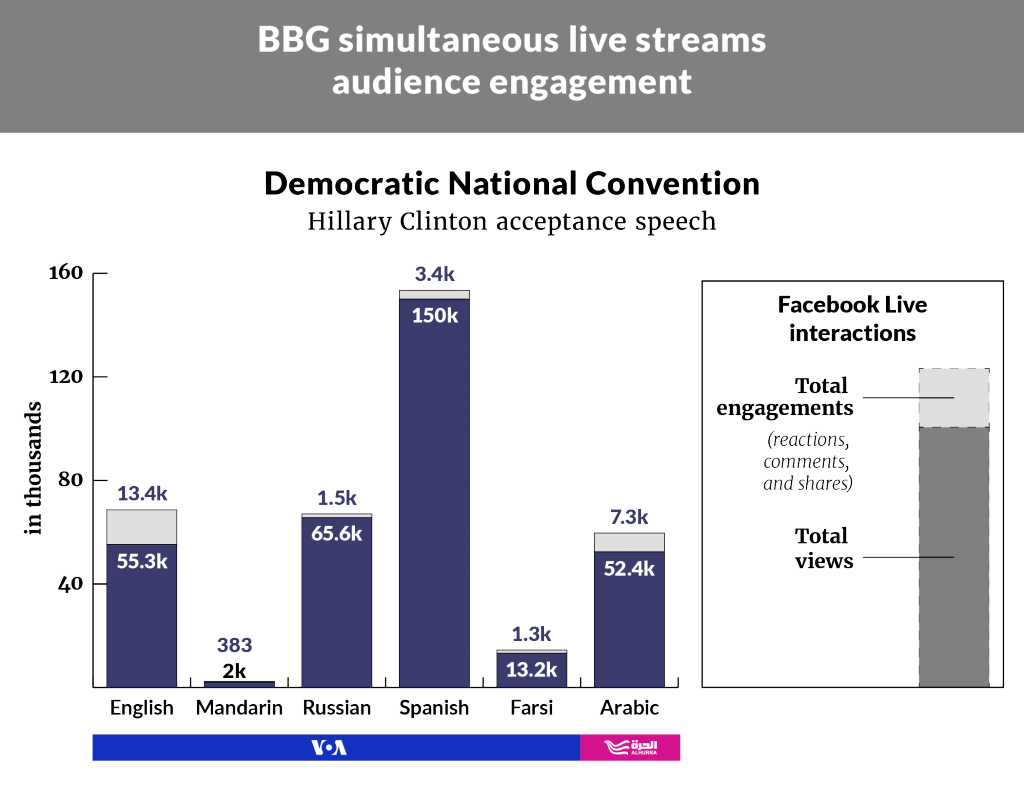In 2016, the BBG networks provided audiences around the world with comprehensive coverage of the historic 58th U.S. presidential election. From the Iowa Caucus to Election Day and beyond, the BBG was the global leader in accurately covering and explaining the U.S. democratic process.
Below are a few examples of the networks’ comprehensive coverage.
Iowa Caucus
VOA National correspondent Jim Malone explains the significance of the Iowa Caucus, the first contest in which voters chose their candidates for the 2016 presidential election.
Feb 1Iowa Caucus
Alhurra and Radio Sawa also provided extensive coverage on the role the Iowa Caucus plays in American democracy and what issues most interested the voters when they went to caucus.
RFE/RL crafted web articles aimed at its audiences in the Balkans, Russia, Ukraine and Iran.
Read more Feb 1Super Tuesday
Voice of America put together a piece explaining Super Tuesday, and for the first time it’s Washington D.C. News Center went live on Facebook to analyze the day’s results.
Read more Mar 1Conventions
Using multiple media platforms and producing a myriad of news and feature reports, BBG networks provided extensive coverage of the Republican and Democratic national conventions.
Republican National Convention
Alhurra’s simultaneous Arabic translation of the Trump’s speech received more than 58,000 views and 3,400 Facebook reactions, comments and shares. Alhurra and Radio Sawa had more than 15 correspondents at the Democratic and the Republican National Conventions each day to report and provide context.
Read more Jul 21Democratic National Convention

Presidential debates

Voice of America invited voters from various diaspora communities to watch the presidential debates and share their reactions. Participants included foreign-born Americans from Cambodia, China, Greece, Ukraine, Somalia, Cameroon, Egypt, and Lebanon.
Leading up to Election Day
BBG networks helped audiences understand the intricacies of the U.S. election process and the backgrounds of the two candidates.

Leading up to Election Day
The Current Time digital team exposed that showed how footage of ballot stuffing in Russian elections was used in a viral Facebook post to claim ballot stuffing in the U.S.
Read more Nov 7Leading up to Election Day
RFE/RL Balkan Service produced reports that many of the websites supporting Trump were created and administered in the Macedonian town of Veles.
RFE/RL’s Uzbek Service asked Uzbek Americans who they planned to vote for.
Read more Nov 7Leading up to Election Day
RFA’s Cantonese Service created an extensive election page, featuring two talk shows before Election Day.
Read more Nov 7Election Day
From the opening of the polls, to Donald Trump’s acceptance speech, the networks of the BBG provided unparalleled coverage of the historic 58th U.S. presidential election.
Read more Nov 8Election Day
The Current Time digital network offered its audience eight hours of live Russian-language coverage on election night.
Several of VOA’s African services connected diaspora communities online during for election night parties. VOA Swahili, for example, went live on Facebook as members of the diaspora from East Africa watched the results come in from a Kenyan restaurant in Beltsville, Maryland.
Read more Nov 8Election Day
Middle East Broadcasting Network’s Alhurra Television stationed its correspondents throughout the Middle East and North Africa, featuring reactions from Afghanistan, Iraq, Lebanon, Turkey, Iran and elsewhere. The network’s flagship discussion program Free Hour was expanded an additional hour to feature discussion from Republican and Democratic analysts and foreign policy experts from Iraq, Saudi Arabia, Egypt and Iran.
Read more Nov 8Election Day

VOA Persian’s Arash Sigarchi reports the incoming election results on-air on election night.
RFE/RL’s Radio Farda provided its radio and Internet audiences with live updates of the results, as well as a series of features, such as the history of Iranian-American relations with Democratic and Republican administrations in the U.S. Radio Azadi, broadcasting in both Dari and Pashto to Afghanistan, liveblogged on election night and conducted interviews with numerous prominent Afghan politicians and residents about expectations for the vote. Azadi also aired a discussion that included Afghanistan President Ashraf Ghani’s press advisor, Nabi Misdaq.
The RFE/RL newsroom also produced a video explainer, both in English and Russian, on the U.S. Electoral College, as well as a glossary of key terms and phrases.
Read more Nov 8Election Day
TV and Radio Martí aired more than 20 hours of live continuous coverage and 24-hour live blogging through social media. As part of their coverage, Radio and TV Martí interviewed Cuban immigrants who were voting for the first time, as well as, other Cuban voters across the country. The Martís also interviewed Cubans in the island for their thoughts on the election.
Read more Nov 8Election Day
RFA’s Mandarin service covered the election with dispatches from Hong Kong. Even though the Chinese authorities barred live coverage of the vote-counting process in the U.S., the election attracted widespread attention in China.
VOA Korean shared a story with RFAs’ Korean service on a North Korean refugee, resettled in Virginia, as he voted for the first time.
Read more Nov 8Covering the response
BBG networks provided extensive coverage of reactions to the Trump’s victory.
VOA’s Student Union, a blog geared to international students, spent six hours on election night with students from Washington, D.C. universities, live-streaming their views on the Student Union site, Facebook, Instagram and Twitter.
Alhurra produced a profile video of Trump, while VOA Persian featured a discussion with the Trump’s Middle East advisor Majid Rafizadeh. RFE/RL’s Radio Farda aired 12.5 hours of election day coverage, and devoted its one-hour morning video program “Breakfast with News” on November 9 to analysis of the election results.
Read more Nov 9Covering the response
Following the victory of Donald Trump, the Current Time digital team put up a Facebook live stream of Donald Trump’s victory speech, which was viewed 111,000 times and accrued some 20,000 reactions, comments and shares. The team also produced a video compilation of Trump’s election promises, and an infographic outlining some of Trump’s statements on Russia.
RFA’s Cantonese Service had four more talk shows on and after Election Day, discussing the future of the United States and the U.S.-China relations.
VOA News Center correspondents in Beijing and Seoul teamed up to produce analysis on how a Trump presidency would affect East Asia, while Radio Free Asia reported on reaction to the vote from China, Myanmar and Cambodia.
Read more Nov 9




